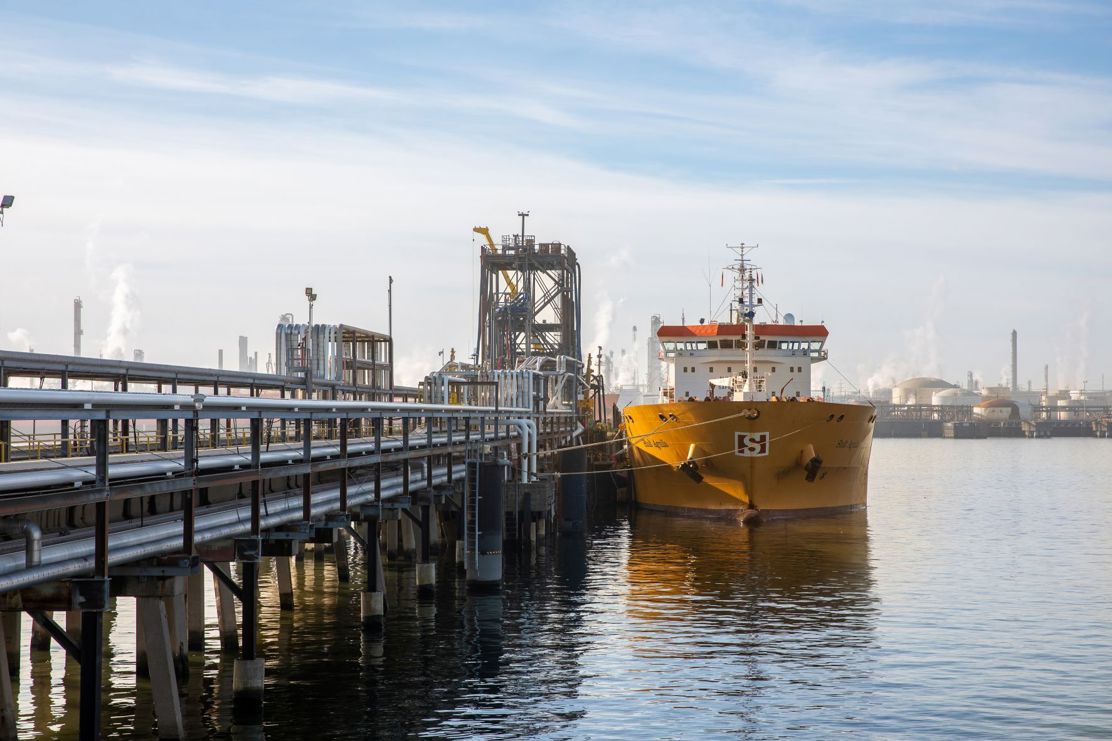Stolt Tankers and Stolthaven Terminals have joined forces to pioneer the removal and sustainable treatment of wastewater from ships docked in Houston.

In June 2021 the two divisions began a pilot programme to identify and balance the challenges, costs and benefits of treating washwater from ships at Stolthaven Houston's onsite wastewater treatment plant.
The facility, which has been operational for more than 20 years, was expanded and modernised in 2018, allowing the terminal to significantly increase its capability to treat third-party waste.
The timing was perfect for Stolt Tankers. At the time, the business was looking for ways to achieve its own sustainability ambitions and fulfil its commitment to UN Sustainable Development Goal 14, Life Below Water.
Discharging onshore is not mandatory, except for toxic cargoes, but Stolt Tankers saw the potential to benefit the marine environment. Paul O’Brien, Deepsea Operations Manager, Stolt Tankers Houston, says: “We are passionate about this topic and started thinking about how we could do it and we knew where to start: Stolthaven Houston has a state-of-the-art treatment facility and, better yet, they’re part of the same company.”
Together with Stolthaven Terminals we have pooled our expertise and innovative thinking to achieve something new in the industry and positive for the environment. We have proven this is a method of opportunity for shipping and terminals.” – Paul O’Brien, Deepsea Operations Manager, Stolt Tankers Houston
Over the last eighteen months, the Stolt Tankers team, led by Houston Port Operations, and Stolthaven Houston tested different scenarios and developed a calculator to compare the costs of each one. With the help of Stolt-Nielsen's Global Shared Services Centre in Manila, they also built an app to track usage of the treatment facility and a bespoke dashboard to analyse the results.
Over a year of testing, from June 2021 to June 2022, the project reduced the amount of washwater to sea by over 8,000m3 while reducing CO2 emissions by 600 metric tonnes and preventing the burning of over 200 metric tonnes of fuel.
“Together with Stolthaven Terminals we have pooled our expertise and innovative thinking to achieve something new in the industry and positive for the environment," says Paul. "We have proven this is a method of opportunity for shipping and terminals.”
Stolt Tankers is now looking to expand its onshore discharge programme to other ports that have wastewater or water-reclamation facilities.